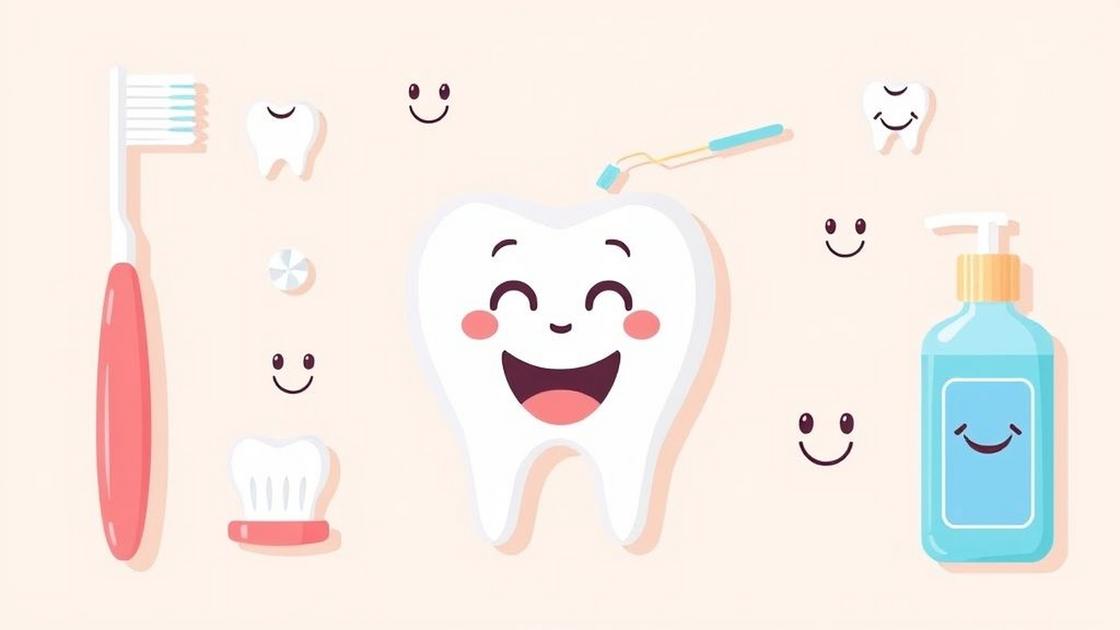Are you tired of battling tooth decay and searching for natural solutions? If you’re like many women over 30, you might feel overwhelmed by the challenges of dental health. Fear not! Understanding how to stop tooth decay naturally at home can empower you to take charge of your smile and overall wellness. In this article, we’ll delve into effective home remedies and lifestyle changes that make a real difference.
Understanding Tooth Decay: What You Need to Know
Tooth decay is a common problem that affects many people, especially women over 30 who may be dealing with other health issues. This condition occurs when the enamel, the outer protective layer of your teeth, gets damaged by acids produced by bacteria in your mouth. These acids can create cavities, which are small holes in your teeth. Understanding tooth decay is the first step to fighting it.
Several factors contribute to tooth decay, including poor dental hygiene, a diet high in sugars, and reduced saliva flow. It’s essential to pay attention to these factors, as they can lead to more significant dental problems, affecting your confidence and overall well-being.
Natural Remedies for Tooth Decay at Home
There are several natural remedies you can try at home to help stop tooth decay:
- Coconut Oil Pulling: Swishing coconut oil in your mouth for 10-20 minutes can help kill harmful bacteria and improve oral health.
- Garlic: Known for its antibacterial properties, chewing on a clove of garlic may help fight bacteria that cause decay.
- Salt Water Rinse: Rinsing your mouth with salt water can help reduce inflammation and kill bacteria.
- Clove Oil: Applying clove oil to the affected area can provide relief and help prevent further decay due to its antiseptic properties.
The Role of Nutrition in Dental Health
Your diet plays a significant role in maintaining your dental health. Foods rich in vitamins and minerals can strengthen your teeth and gums. Here are some key dietary tips:
- Calcium: Dairy products, leafy greens, and almonds are excellent sources of calcium that help fortify tooth enamel.
- Vitamin D: This vitamin helps your body absorb calcium. Consider getting some sunshine or eating fortified foods.
- Fruits and Veggies: Crunchy fruits and vegetables increase saliva flow, which naturally cleanses the mouth and reduces decay.
- Avoiding Sugars: Limit sugary snacks and drinks, as they feed the bacteria that cause tooth decay.
Essential Oral Hygiene Practices to Prevent Decay
Practicing good oral hygiene is vital in preventing tooth decay:
- Brush Twice a Day: Use fluoride toothpaste to strengthen enamel and brush for at least two minutes.
- Floss Daily: Don’t skip flossing! It removes food particles and plaque from between teeth where your brush can’t reach.
- Use Mouthwash: Choose an antibacterial mouthwash to keep your mouth clean and fresh.
- Replace Your Toothbrush: Change your toothbrush every 3-4 months or when the bristles are frayed.
Herbal Solutions for Stronger Teeth
Herbs and plants can also strengthen your teeth and combat decay. Some options include:
- Green Tea: Rich in antioxidants, it can help reduce bacteria in the mouth and lower the risk of cavities.
- Neem: Known for its antibacterial properties, neem can be used in toothpaste or as a mouthwash.
- Turmeric: This spice has anti-inflammatory properties and can help reduce gum inflammation.
- Parsley: Chewing parsley can help freshen breath and combat bad bacteria.
The Impact of Hydration on Your Oral Health
Staying hydrated is crucial for overall health, including your oral health. Drinking enough water helps maintain saliva production, which protects against decay. Here’s how to ensure you’re well-hydrated:
- Drink Water Regularly: Aim for at least eight glasses of water a day to keep your mouth moist.
- Use a Humidifier: If you live in a dry environment, a humidifier can help maintain moisture in your mouth.
Avoiding Common Foods that Cause Tooth Decay
Some foods are known for promoting tooth decay. It’s essential to limit these to maintain your oral health:
- Sugary Snacks: Candy, cookies, and cakes can create a breeding ground for bacteria.
- Soda and Juice: These drinks are high in sugar and acids, leading to enamel erosion.
- Sticky Foods: Foods like dried fruit and certain candies can stick to your teeth and promote decay.
The Importance of Regular Dental Check-ups
Visiting the dentist regularly is essential for preventing tooth decay. Here’s why:
- Professional Cleanings: Dentists can remove plaque and tartar that regular brushing might miss.
- Early Detection: Regular check-ups allow for early identification of decay before it worsens.
- Personalized Advice: Your dentist can offer tailored advice based on your oral health.
How Stress Relates to Tooth Health
Did you know that your stress levels can impact your oral health? Stress can lead to a brace of habits like teeth grinding, which wears down enamel. Manage your stress with these methods:
- Meditation: Just a few minutes of mindful breathing can help reduce stress levels.
- Exercise: Regular physical activity can help diminish stress and improve overall health.
- Sleep: Prioritize sleep for healing and recovery; aim for 7-9 hours each night.
Empowering Your Dental Journey: Steps to Take
Your journey towards preventing tooth decay is within reach. Start by incorporating these healthy habits into your daily routine:
- Create a Routine: Establish a consistent dental hygiene routine that works for you.
- Stay Informed: Keep learning about dental health and natural remedies.
- Connect with Others: Join groups or forums to share experiences and learn from others on the same journey.
- Be Patient: Healing takes time, but through consistent efforts, you will see improvement in your oral health.






